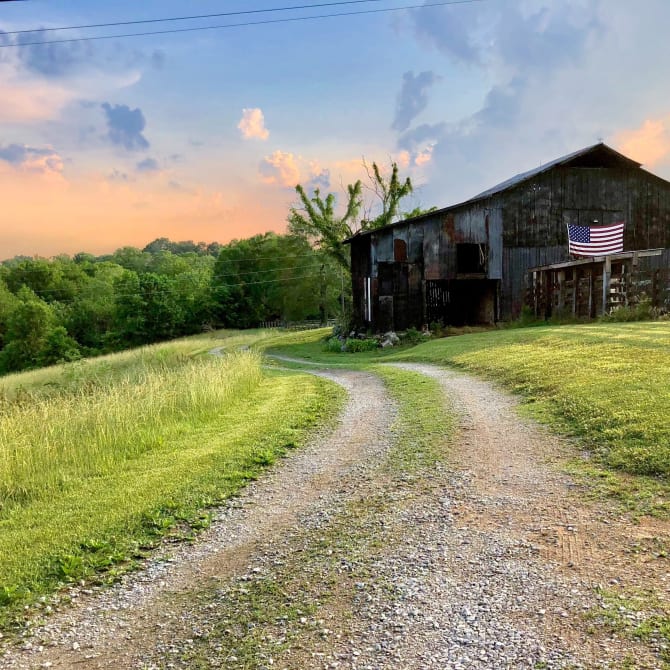
Next Great [American] Novel
Write the first chapter of the next Great [American] Novel.
Prizes
- Grand Prize:
- $1,000
- Second Place:
- $500
- 10 Runners-Up:
- $50
Status
CompletedTimeline
Submissions opened
Jul 20, 2023
Submissions closed
Sep 08, 2023 3:59 AM CUT
Results
Sep 28, 2023
Prizes
- Grand Prize:
- $1,000
- Second Place:
- $500
- 10 Runners-Up:
- $50
Status
CompletedTimeline
Submissions opened
Jul 20, 2023
Submissions closed
Sep 08, 2023 3:59 AM CUT
Results
Sep 28, 2023
About this challenge
The Prompt
Write the first chapter of the next Great [American] Novel.
For this challenge, we ask you to explore the theme of national identity and belonging through the lens of your birth country, or the country you have lived in that you most deeply identify with. Whether you choose to highlight your nation's triumphs, struggles, or its diverse tapestry of voices, let your creativity flow freely as you contribute to the rich tradition of the next Great [Insert Your Country] Novel. Embrace the spirit of inclusivity and paint a vivid portrait of your country's life, history, and aspirations, striving to build a literary legacy that celebrates the collective human experience.
Click here to read some tips for getting started on your first chapter.
A Brief History of the Great American Novel
The concept of the Great American Novel (GAN) emerged in the mid-19th century during a period of rapid societal change and the growth of American identity. It was a time when the United States was coming of age as a nation, grappling with its past, present, and uncertain future. As a response to this cultural ferment, writers sought to capture the unique American experience and create literary works that would resonate with both domestic and international audiences.
Some of the earliest contenders for the GAN title were Nathaniel Hawthorne's "The Scarlet Letter" (1850) and Herman Melville's "Moby-Dick" (1851). However, it was Mark Twain's "Adventures of Huckleberry Finn" (1885) that is often regarded as one of the seminal works of American literature and a potential precursor to the GAN. Twain's novel dealt with themes of race, identity, and freedom, providing an incisive critique of American society.
In the early 20th century, the GAN found a new champion in F. Scott Fitzgerald's "The Great Gatsby" (1925). Through its examination of the Jazz Age and the American Dream, the novel resonated with readers, leaving a profound impact on the literary landscape. Over the decades, various authors continued to contribute to the canon of Great American Novels, reflecting the nation's evolving values and identity. Works such as Toni Morrison's "Beloved" (1987), John Steinbeck's "The Grapes of Wrath" (1939), and J.D. Salinger's "The Catcher in the Rye" (1951) further enriched popular American literature.
The 21st century witnessed the emergence of several remarkable contenders for the title of the Great American Novel, penned by authors from diverse backgrounds. Among them, Neil Gaiman, a celebrated British writer, left an indelible mark with his novel "American Gods." Though not American by birth, Gaiman's exploration of the tension between old world gods and new world deities, set against the backdrop of America, firmly cemented his work as an exceptional addition to the canon of Great American Novels. Through his literary prowess and profound understanding of American life, Gaiman demonstrated that the spirit of a great nation knows no boundaries.
Another prominent writer challenging the conventional narrative of the Great American Novel is Chimamanda Ngozi Adichie, a Nigerian author renowned for her work "Americanah." This thought-provoking novel transcends continents, weaving the story of an immigrant adjusting to American life while delving into the complexities of identity and belonging. Set in both Lagos, Nigeria, and New Jersey, "Americanah" illuminates a fresh and authentic perspective on the American experience.
In order for your submission to qualify, it must be:
- Between 2,000-5,000 words.
The Prizes
- Grand Prize: $1,000
- Second Place: $500
- 10 Runners-Up: $50
How to enter
For your story to be eligible, it should be between 2,000 and 5,000 words, and adhere to our Community Guidelines. Stories published on Vocal and entered into the contest up until 11:59 PM ET on September 7th will be entered for consideration. Official Rules for the Challenge can be found here.
The Next Great [American] Novel Challenge is exclusive to Vocal+ members. To learn more and upgrade to Vocal+ visit https://vocal.media/vocal-plus.
To be eligible to win the grand prize, second place, or runners-up prizes, you must be over the age of 13 and residing in a country where Stripe is available at the time of entry. A complete list of countries where Stripe is available can be found here—winners will need to have a Stripe account created and connected in order to receive the prizes. For this reason, entrants located outside of any of these countries will not be eligible to win.
Open challenges
Challenges you can enter now for a chance to win.
Challenge resources
Whispering Woods Challenge Winners
Congratulations to Morgan Christy Rickards for their winning Whispering Woods story, Guardian at the Gate. Morgan has been a Vocal creator since February 2021, and this is their first time placing in Challenge — well done, starting with a win! Guardian at the Gate draws evocatively from Welsh tales of the Cantre'r Gwaelod, a lost sunken kingdom between the forest and the sea. Heledd’s dangerous adventure pulls her towards the water but her spirit is anchored in the woods: Morgan’s writing is atmospheric and exciting.
Vocal Curation TeamPublished 9 days ago in ResourcesSnacktime Sonata Challenge Winners
Well, your Snacktime Sonatas made us hungry, and that’s about the highest compliment we have. Food — taste, smell, sensation — is a powerful conduit to the past, to memories pleasurable and painful and sometimes bittersweet, a mixture of comfort and challenge. Congratulations to Penny Fuller for Sativa — it’s a first win for Penny — a hymn to the “secret, unbounded/freedoms” of fresh peas in the pod. The narrative voice of the poem doesn’t really want to be outside, but finds joy in the green things of the earth; this is a lovely work of resilience.
Vocal TeamPublished 15 days ago in Resources'The Dragon Beside Me' Challenge Winners.
"The Dragon Beside Me" has ignited the spirits of writers across the Vocal community and PViM have had the exciting opportunity to work beside our friends at Vocal on discerning the winners. No easy feat let us tell you. From initial shortlist to final deliberations, the standard was as high as our spirits.
Proud ViM ProductionsPublished about a month ago in Resources



